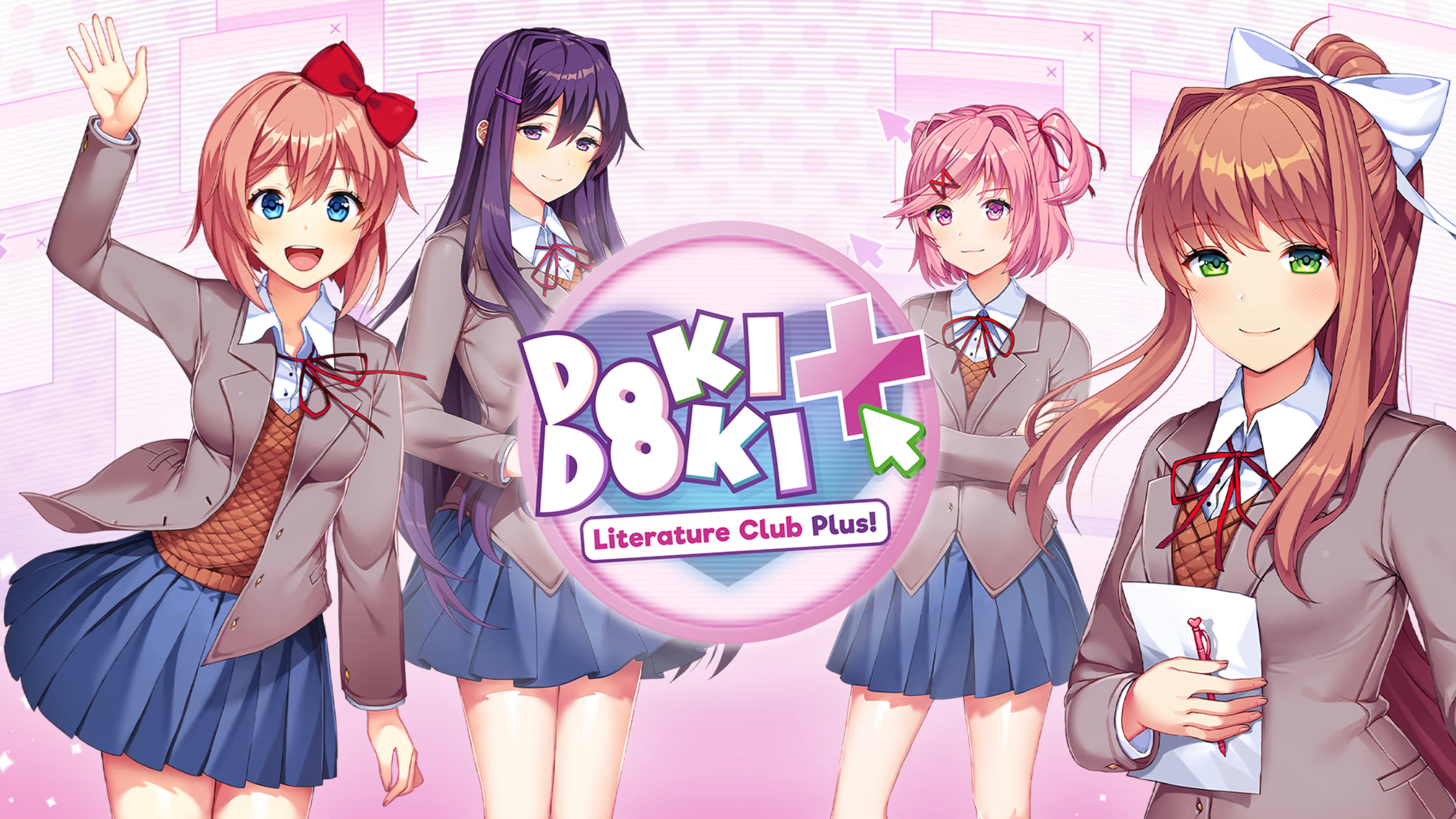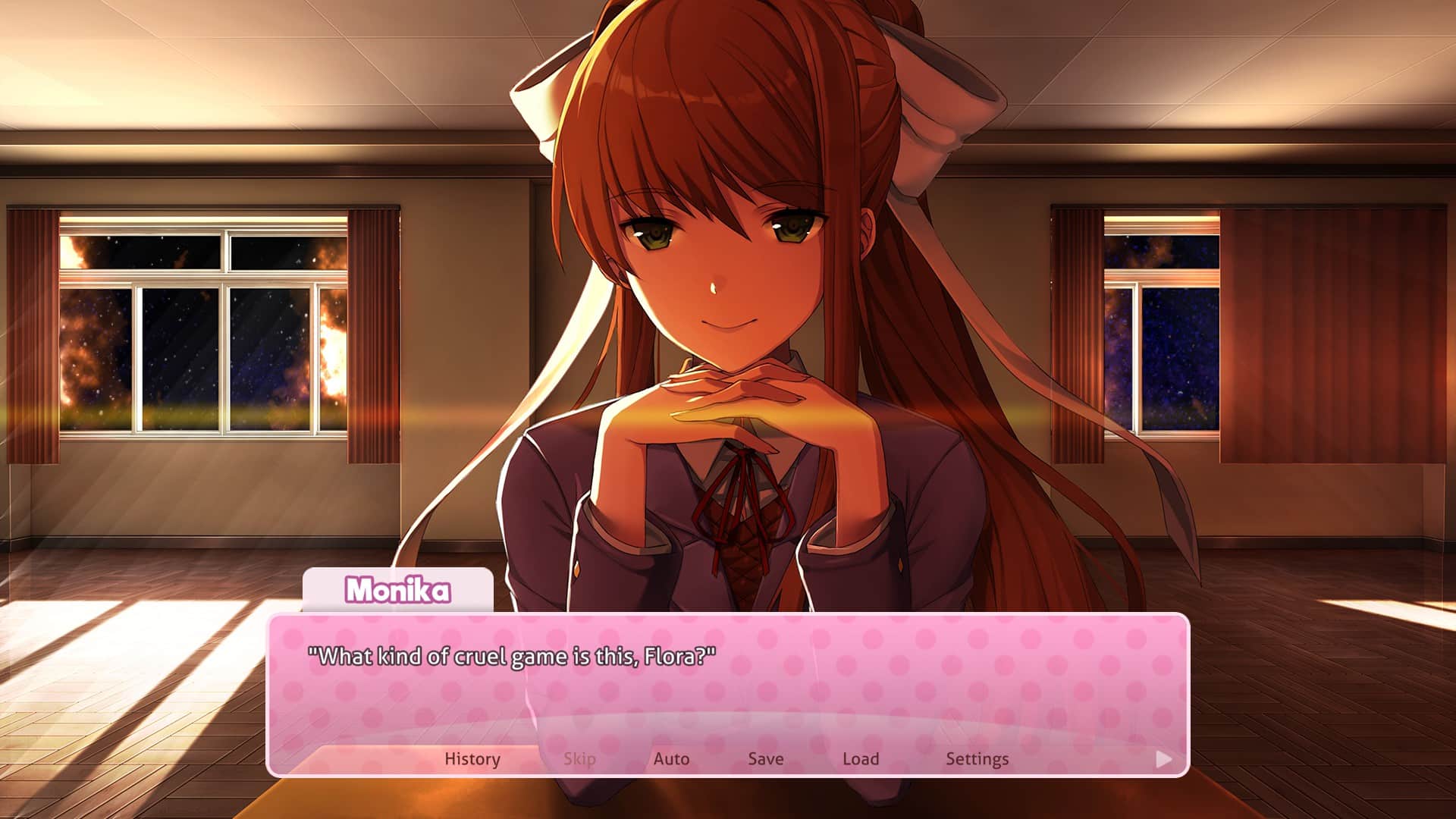Exploring Feminist Play in Doki Doki Literature Club
The critical play for this week is the game Doki Doki Literature Club (DDLC), created by Team Salvato, available on multiple platforms, including PC, Mac, and Linux.
In this short essay, I argue that playing DDLC as a feminist involves critically analyzing how the game represents and interacts with gender norms, power dynamics, and emotional manipulation. While DDLC cleverly subverts traditional visual novel tropes to deliver a unique psychological horror experience, it often falls short in intertwining feminist theories, particularly in its portrayal of female characters and their agency. Utilizing feminist perspectives could significantly improve the game’s narrative depth and social impact.
DDLC initially presents itself as a typical dating simulator where the player interacts with four female characters: Sayori, Natsuki, Yuri, and Monika. However, the game takes a dark turn, revealing themes of mental illness, manipulation, and existential horror. Monika, who becomes self-aware, manipulates the game’s code to remove her rivals and monopolize the player’s attention. This meta-narrative twist is a clever design choice, but it also raises questions about the portrayal of female autonomy and mental health.
From a feminist perspective, the game’s treatment of its female characters is problematic. Each character’s struggles—Sayori’s depression, Yuri’s obsession, Natsuki’s abusive home life, and Monika’s existential crisis—are exploited for horror rather than being respectfully addressed. This exploitation reinforces negative stereotypes and undermines the potential for these characters to be seen as complex, autonomous individuals.
Based on this, I propose several improvements of this game design:
- Complex Character Development: Rather than using mental illness as a plot device, the game could delve deeper into the characters’ experiences, offering more nuanced portrayals and allowing them to demonstrate resilience and agency.
- Empathy and Support Mechanisms: Incorporating choices that enable the player to support and empathize with the characters could transform the game into a more impactful narrative about mental health and social support.
- Balanced Power Dynamics: Ensuring that Monika’s self-awareness and manipulation are countered by the other characters developing their agency could create a more balanced and feminist narrative.
Compared to other visual novels like Hatoful Boyfriend or Clannad, DDLC stands out for its meta-narrative and psychological horror elements. However, games like Life Is Strange and Gone Home offer richer feminist narratives by focusing on character development and emotional depth, highlighting the potential for DDLC to evolve in similar ways.
Integrating ideas from Shira Chess’s Play Like a Feminist, DDLC could benefit from a feminist approach that values diverse narratives and character agency. Chess emphasizes the need for games to move beyond traditional, often masculinized narratives, offering stories that resonate with a broader audience. By aligning with these principles, DDLC could transform its narrative to better reflect feminist ideals.
Playing Doki Doki Literature Club as a feminist reveals significant areas for improvement in how the game handles its themes and characters. By adopting feminist perspectives, DDLC can evolve into a more respectful and impactful narrative that not only entertains but also educates and empowers its players. Transforming the portrayal of its female characters and their struggles would not only enhance the game’s emotional depth but also align it with the broader goals of media activism and social change.




